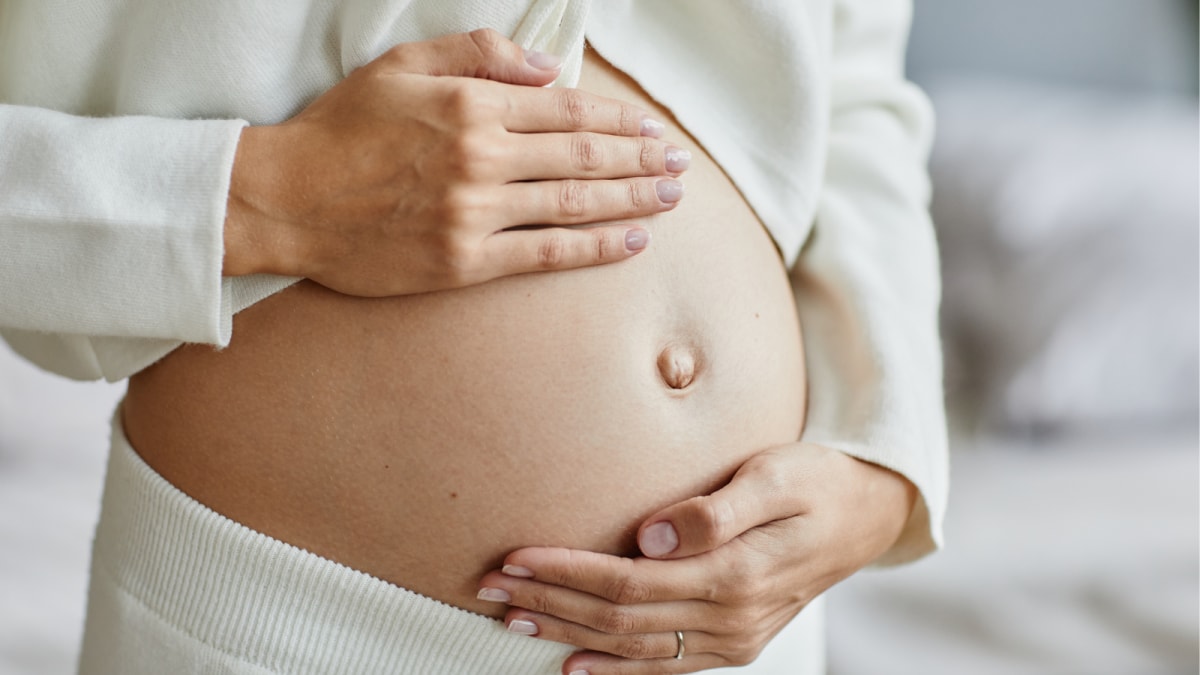Last Updated:
While a pregnancy after 35 is possible, it requires thoughtful planning, informed decision-making, and proactive healthcare.

Lifestyle choices like diet and exercise impact pregnancy outcomes.
Motherhood is no longer confined to the twenties or early thirties. More women are choosing to start families later in life, pursuing careers, personal goals, or emotional readiness before conception. While a pregnancy after 35 is entirely possible, it requires thoughtful planning, informed decision-making, and proactive healthcare to ensure optimal outcomes for both mother and baby.
Understanding Fertility After 35
“Late pregnancy, which we medically define as after 35, isn’t a barrier to motherhood, but it does require thoughtful preparation,” says Dr. Rohini Khera Bhatt, Consultant Obstetrics, Gynaecology & Robotic Surgery, Apollo Hospitals, Navi Mumbai. She emphasises the importance of assessing fertility early. “Women are born with all the eggs they’ll ever have, and both the quantity and quality naturally decline with age, particularly after 35 and more rapidly after 40. Don’t wait to assess your fertility status. Get a comprehensive evaluation, including ovarian reserve through AMH testing, thyroid function, and blood sugar levels.”
Dr. Batchu Sowdamini, Senior Consultant Obstetrics & Gynaecology, Apollo Hospitals, Vizag, adds, “After 35, the total number of eggs decreases, and there is a higher likelihood of genetic problems in babies. Women should plan accordingly to reduce risks.”
Managing Risks And Myth-Busting
Pregnancies after 40 are often perceived as high-risk, but medical guidance and monitoring can make a significant difference. Dr. Bhatt notes, “Is 40 too late? Absolutely not. But it’s not the same as conceiving at 25 or 30. Planning, monitoring, and having the right medical support are key.” Common myths, such as “healthy women can bypass age-related fertility decline” or “IVF guarantees pregnancy at any age,” are debunked. Success rates of IVF decline with age, and while risks increase, proper care can result in healthy pregnancies.
Dr. Sowdamini highlights the medical realities: “In early 40s, women may face difficulty conceiving, higher chances of anomalies, and high-risk pregnancies. Growth restrictions in babies are more common, so early planning before 35 is ideal.”
Lifestyle Choices That Make A Difference
Experts agree that lifestyle significantly influences fertility and pregnancy outcomes. Dr. Bhatt advises a holistic approach: “Nutrition, weight management, exercise, stress reduction, and minimizing exposure to environmental toxins all contribute to healthier conception. Mediterranean-style diets rich in antioxidants, adequate sleep, mindfulness, and emotional support create the strongest foundation for pregnancy.”
Dr. Sowdamini adds, “Women should maintain a balanced diet, regular health check-ups, and consistent fitness routines. Constant monitoring helps manage any underlying conditions like thyroid, diabetes, or hypertension, which can affect pregnancy outcomes.”
Essential Medical Tests For Late Pregnancy
For women over 35, early testing and medical support are crucial. Dr. Bhatt recommends baseline fertility assessment, including AMH testing, antral follicle count, FSH, and estradiol levels, and comprehensive health screening. Partner evaluation and genetic counselling are also vital. Dr. Sowdamini stresses the importance of egg or embryo preservation for women considering delayed pregnancy, ensuring options remain open for conception with minimal risk.
Late motherhood is increasingly common, and with proper preparation, it can be safe and rewarding. Understanding fertility status, managing health proactively, adopting a balanced lifestyle, and working closely with healthcare professionals are the pillars of a successful late pregnancy. While risks increase with age, informed planning and personalised care help women achieve healthy pregnancies and embrace motherhood confidently.
Delhi, India, India
October 24, 2025, 13:01 IST







